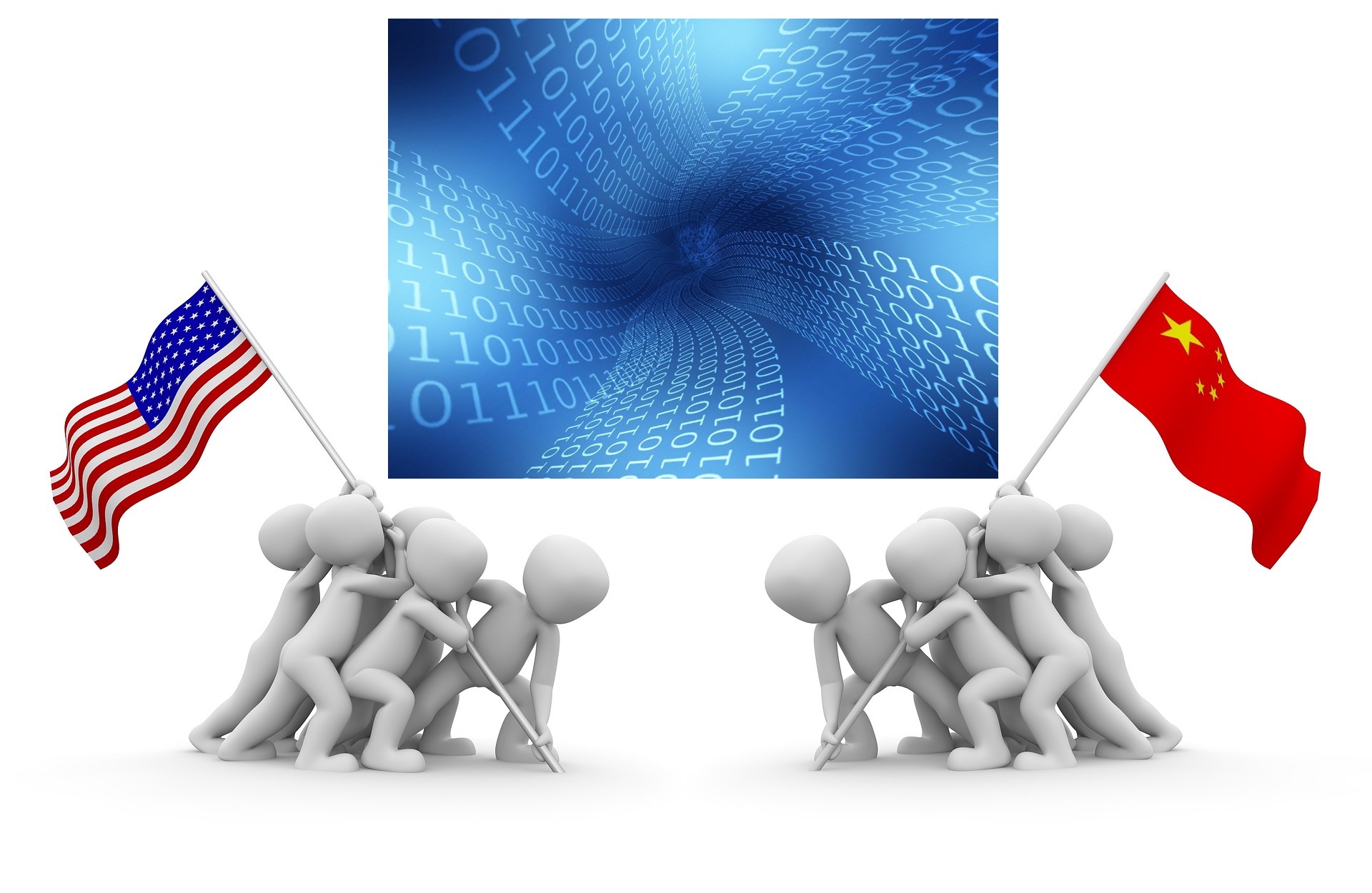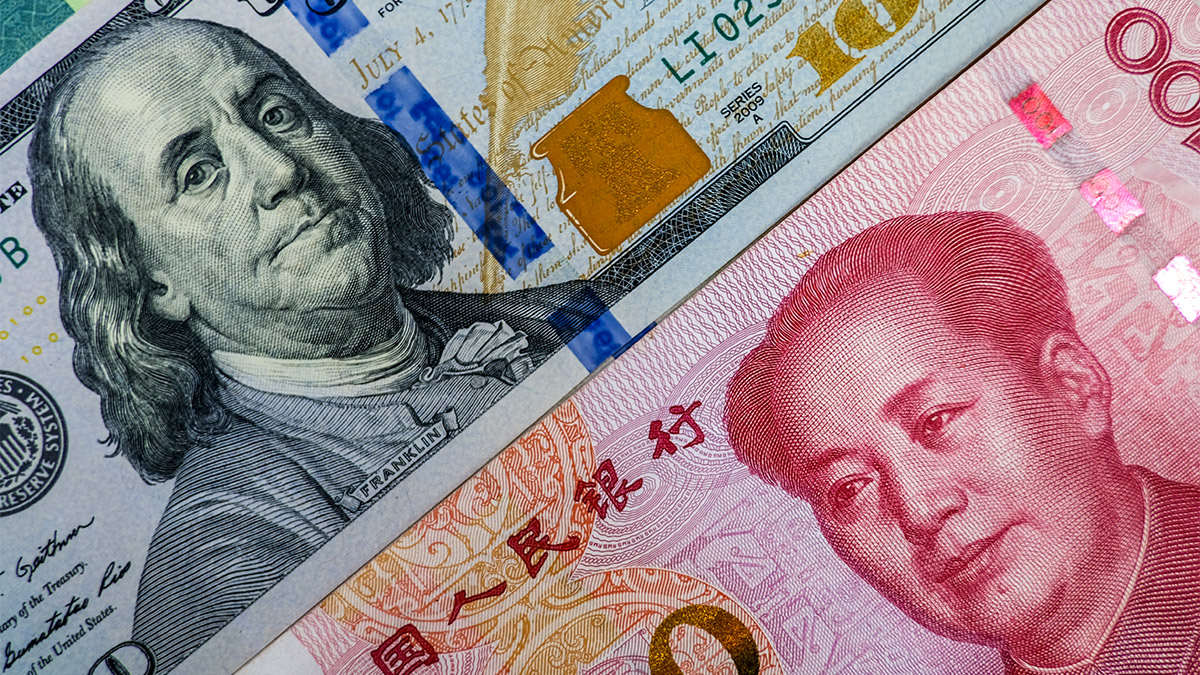
Are we about to have a new Cold War with China and/or decouple shared technology? It's a pressing question on many businesses' minds as international relationships deteriorate and sanctions are put into place.
The partnership of think tanks and franchiser is well established between the two countries. Look on the back of any MacBook: designed in Silicon Valley, manufactured in China.
Never conflict-free Sino-U.S. relations took a more confrontational turn under Xi Jinping, the Chinese politician served as General Secretary of the Chinese Communist Party (CCP) and Chairman of the Central Military Commission (CMC) since 2012, and President of the People's Republic of China (PRC) since 2013.
Yet, the US isn't the only one wanting to decouple this tech partnership; nations who are newly industrializing are a larger export market for China than America (source Gavekal Dragonomics).
Beijing’s Belt and Road Initiative in Africa and the Middle East, using trade-based diplomacy combined with the rise of the digital renminbi, are offering new markets for China to switch to if a trade-war gets to the point where China withholds exports to the US.
If we look into past actions China has taken, we can see a pattern of restricting foreign investment across the board.
Whether that's biological security, information security, food security or just blocking non-China websites like Facebook it's clear the Chinese government wants to control the flow of information to their citizens.
Massive protests in Hong Kong, started in June against plans to allow extradition to mainland China and to allow a full democracy.
The protests combined with antagonism at US and Chinese embassies and Trump banning Chinese-owned TikTok from the US unless purchased by a US company have created a fire storm whose final conclusions we await like an MJ popcorn meme.

With the many co-dependent economies the US has on foreign exports, maintaining diplomacy between companies would be to our mutual benefit.
Because unlike China, the US hasn't reduced their dependency on potentially hostile foreign actors who export many household items we view as a given.
Both countries seem to mirror each other in increasing national security scrutiny of data flows, expansion of export controls, and attempts to shore up supply chain security for information and communications technology products and services.
Continued tariff disputes beginning in 2018 resulted in supply chain decoupling from China already on many levels.
The 2020 coronavirus pandemic has only exacerbated this pattern and the tech sector is now ground zero for these patterns.
China has already dedicated an incredible $1.4 trillion dollars on a digital infrastructure public spending program meant to keep more of tech in house and increase their ability to compete with global markets on a new level.
At the same time, Japan has just set aside $2.2 billion to facilitate re-shoring from China.

Credit: Dilok Klaisataporn/Getty Images
Going forward, companies are going to have to accept an “in-China-for-China” business model in order to gain access the Chinese market.
Techno-nationalism when you break it down is, in essence, a mercantilist behavior which links a nation’s tech abilities and enterprise with issues regarding national security, economic profitability, and social stability.
According to The Diplomat, techno-nationalism will affect the academic and innovation landscape in three ways:
1.The impacted institutions are going to decouple from blacklisted Chinese universities and academic programs.
2. An spreading web of export controls and restrictions are going to put more pressure on institutions to fall in line with more exacting regulations.
3. New rule frameworks and good governance indicators are going to emerge throughout global academia and the innovation landscape.
This is a required response to the many decades of Beijing’s innovation-mercantilism, and the role that China’s state apparatus has played in the methodical targeting of strategic IP, technology, and human capital at the world’s top universities.
In June 2020, America blacklisted many of China’s top universities, including the Harbin Institute of Technology (HIT), which is often called the “MIT of China.”
Many U.S. businesses have put their hopes on a potential end of the Trump presidency following the November 2020 elections while big tech companies like Apple, Google, and Microsoft are moving their manufacturing plants to countries outside of China like Vietnam and Thailand.
However, even if Trump - who just got diagnosed with Covid and is in the hospital - loses and Joe Biden wins, that doesn't mean international relations will instantly ease up.
The Democratic National Committee (DNC) along with presidential candidate Biden's staff have been ordered to delete TikTok off their phones due to security risks of TikTok accessing their clipboard for saved passwords to many high level campaign websites.
What does this ultimately mean going forward?
It means globalization is going to get a little smaller, just like our social communities have after covid lockdowns in March 2020 this year.
Whether we like it nor, it appears many of the self-sufficient city planning ideas of Patrick Geddes may express themselves economically out of survival needs going forward.
Many companies will choose to create vertical integration systems like Elon Musk's rocket launch and production factories of SpaceX rather than jump through an addition 20 hoops to partner with China.
How do you see this playing out going forward? Comment below!
. . .
Enjoyed this blog? Signup here to get updates on new startup blogs.
Is Facebook not explaining why they disapproved an ad?
I worked at FB for years and offer FB Policy Consulting here
Available for freelance writing and guest posting on your blog: [email protected]






Leave a Reply